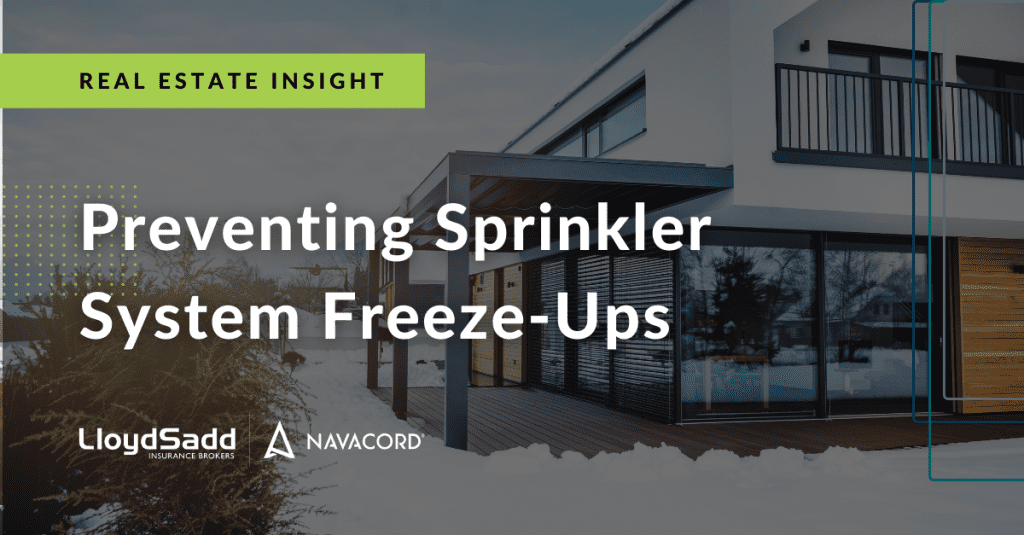Preventing Sprinkler System Freeze-Ups

In an effort to help educate our clients, we want to advise our partners on a few recent claims with respect to sprinkler systems freezing and causing severe water damage to buildings.
Every winter, plummeting temperatures bring ice and snow to most regions of the country and present us with a unique set of loss prevention challenges. A common, yet significant winter challenge is how to prevent interior water pipes from freezing.
A freeze-up of automatic sprinkler system pipes, caused by insufficient building heat, may result in burst piping and subsequent water damage to a building and its contents.
14 Tips To Prevent Sprinkler System Pipes From Freezing:
1. Ensure your building’s heating system is completely serviced and then checked on a regular basis throughout the cold weather months.
2. The structural components of the building should be inspected for any deficiencies or problem areas. Broken windows and wall cracks should be repaired promptly to prevent drafts from entering the building.
3. Temperatures in areas protected by wet pipe systems should be kept above 5 C.
4. Adequate heat should be provided to concealed areas, such as attics and areas above ceilings, where sprinkler piping has been installed.
5. Utilize pipe insulation or heat taping where required.
6. Ensure all employees know where the key water shut off valves are located.
7. Provide a map of the facility to show all water isolation valves and show staff how to shut off in the event of an emergency.
8. Although dry pipe systems are less susceptible to freeze-ups, they should also be included in any winterizing program.
9. Fire pumps should be in a heated room and should be tested at periodic intervals. Suction taken from open water should have lines that are buried below the frost level. Intake screens should be kept clear of ice.
10. Be on high alert for plunging temperatures for extended periods of time.
11. Consider installing monitored temperature alarms tied into building management systems.
12. Identify fire hydrants within snow banks to ensure they are not struck by snow removal contractors.
13. Once winter has arrived, management should keep a close watch on weather conditions. All commercial buildings and facilities should have a plan in place for handling extreme snowfalls and extreme cold spells that may lead to heating problems. Have someone check properties over the weekends or extended periods like holidays.
14. Supervisory personnel should be provided with a list of emergency numbers to call in case of a burst pipe.
To download insight, click here: Real Estate_Insight_Preventing Sprinkler System Freeze-ups